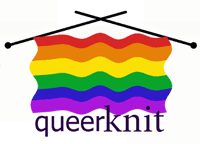I went to synagogue starting in about the 3rd or 4th grade and we always attended services for Yom Kippur, both evening and all day. (in addition to Shabbat, Rosh Hashana, Purim, Sukkot, Simchat Torah, and others...)
I don't remember much about the rest of the holidays (though I loved Simchat Torah) Yom Kippur, the day of atonement, was, for me, a great lesson in ethics.
First, the language of the prayers for forgiveness of chet (sin), are all in the plural.
As I recited the Vidui (confessions) as a child, I wondered how I could have committed the "alphabet of sin" from Aleph to Tav (A-Z). I tried to remember everything I had done wrong over the past year. Eventually I realized that the reason for the plural (al chet shechatanu) was that no one single person has committed all of these chet, but rather we, as a community, are collectively responsible for all of the chet committed. We said every year,
"For the sin we have sinned by failing to work for peace."
As a 12 year old, how could I work for peace? How could I have sinned like this? And I realized, even as a 12 year old, that I could, in fact, work for peace. Perhaps not like Jimmy Carter did, but peace within my own circle. Peace between classmates. Peace as a noble virtue. (is it any wonder I was voted most likely to join the Peace Corps?)
In praying in the plural I also learned that being arrogant, while not equal to, for instance embezzling millions, it did not give me the right to be arrogant just because other people had done worse than I.
We said every year,
"For the sin we have sinned by our narrow-mindedness."
And I took this to heart. I tried very hard to look at both sides of a situation early on. I wanted to know exactly where I was being narrow-minded. I also knew I would have to answer for it again next year and I wanted desperately to say, no, I had not been narrow-minded.
In Judaism, we recount the chet of taking credit that we didn't earn. That was never something that was taught to me specifically but I remember reading it in synagogue and thinking how unethical that would be. I try to always give credit where credit is due. Acknowledging the contributions of others to a project is something I see as inherently ethical.
Another chet we confessed to was of giving in to despair. I could feel despair, I learned, but I could not give in to it. I could not give up. Even today, I carry that with me. I may be frustrated and may feel helpless but I still will not give up on working for change.
Tzom kal to everyone who is fasting today and may none of us give in to despair.
I don't remember much about the rest of the holidays (though I loved Simchat Torah) Yom Kippur, the day of atonement, was, for me, a great lesson in ethics.
First, the language of the prayers for forgiveness of chet (sin), are all in the plural.
As I recited the Vidui (confessions) as a child, I wondered how I could have committed the "alphabet of sin" from Aleph to Tav (A-Z). I tried to remember everything I had done wrong over the past year. Eventually I realized that the reason for the plural (al chet shechatanu) was that no one single person has committed all of these chet, but rather we, as a community, are collectively responsible for all of the chet committed. We said every year,
"For the sin we have sinned by failing to work for peace."
As a 12 year old, how could I work for peace? How could I have sinned like this? And I realized, even as a 12 year old, that I could, in fact, work for peace. Perhaps not like Jimmy Carter did, but peace within my own circle. Peace between classmates. Peace as a noble virtue. (is it any wonder I was voted most likely to join the Peace Corps?)
In praying in the plural I also learned that being arrogant, while not equal to, for instance embezzling millions, it did not give me the right to be arrogant just because other people had done worse than I.
We said every year,
"For the sin we have sinned by our narrow-mindedness."
And I took this to heart. I tried very hard to look at both sides of a situation early on. I wanted to know exactly where I was being narrow-minded. I also knew I would have to answer for it again next year and I wanted desperately to say, no, I had not been narrow-minded.
In Judaism, we recount the chet of taking credit that we didn't earn. That was never something that was taught to me specifically but I remember reading it in synagogue and thinking how unethical that would be. I try to always give credit where credit is due. Acknowledging the contributions of others to a project is something I see as inherently ethical.
Another chet we confessed to was of giving in to despair. I could feel despair, I learned, but I could not give in to it. I could not give up. Even today, I carry that with me. I may be frustrated and may feel helpless but I still will not give up on working for change.
Tzom kal to everyone who is fasting today and may none of us give in to despair.
Labels: Jewcy, New Year's Revolution, Tikkun olam
 Stumble It!
Stumble It!




















